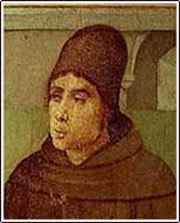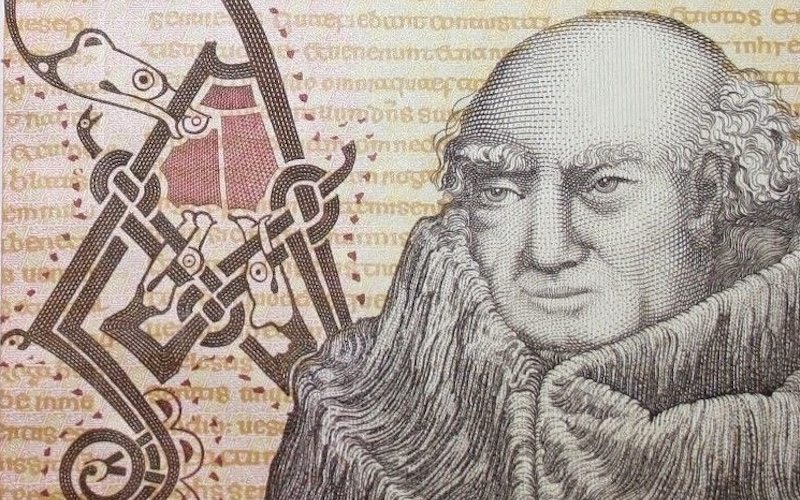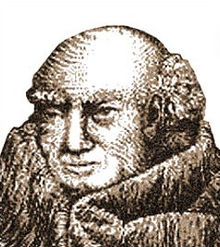Eriugena’s contemporaries invariably refer to him as Joannes Scottus or Joannes Scottigena. In the manuscripts of the tenth and subsequent centuries the forms. ERIUGENA, JOHANNES SCOTTUS(b. Ireland, early ninth century;d. England [?], c. ), natural philosophy, theology. For the original article on Eriugena see. The crucially important Christian mystic philosopher, translator, theologian and poet, John Scottus Eriugena (Johannes Scottus Eriugena or Scotus Erigena).
| Author: | Vunris Kalmaran |
| Country: | Hungary |
| Language: | English (Spanish) |
| Genre: | Software |
| Published (Last): | 1 November 2024 |
| Pages: | 119 |
| PDF File Size: | 5.42 Mb |
| ePub File Size: | 13.83 Mb |
| ISBN: | 892-9-71979-841-5 |
| Downloads: | 87869 |
| Price: | Free* [*Free Regsitration Required] |
| Uploader: | Voodoolrajas |
Creation is normally understood as coming into being from non-being. When, therefore, we speak about Him we are safer in using the negative apophatike than the positive kataphatike mode of predication.
eeigena Neither God nor man is in space or time; both are incorporeal, and hence numerical difference, or difference in subject, can only have the Neoplatonic meaning that the first will always differ from what comes after the first. This misdirected will is punished by finding that the objects after which it thirsts are in truth vanity and emptiness.
Iohannis Scotti De divina praedestinatione liber. These Causes, considered as diverse and infinite in themselves, are actually one single principle in the divine One. The influence of these on the temperament of the venturesome Celt was towards freedom and not towards restraint in theological speculation. Reality is a continuum, and all God’s creatures are theophanies of God himself, for God speaks in them and through kohn Eriugena is original in his cosmological speculations, but not as an astronomer.
Open access to the SEP is made possible by a world-wide funding initiative. Christopher Bamford, The Voice of the Eagleop.
John Scotus Erigena | Irish philosopher |
Contains an exhaustive bibliography for — In the realm of space and time the ideas take on the burden of matter, which is the source of suffering, sickness, and sin.
Christ possesses all the perfections of human nature, since vir autem perfectus est Christus IV. Epiphanius, commissioned by Charles, made those Greek patristic writings accessible to Western thinkers.
Subsequently, On Divine Predestination was condemned by the bishops in France at the councils of Valence and Langresin part drigena its over-use of logical method or dialectic dialectica. Their function is that of exemplar and efficient causes. Eriugena as does Nicholas of Cusa gives a unique place to Christ in the outgoing and return of all things. Christ is the coming together of the divine and the created orders. There he clearly distinguishes the superessential unity and the supersubstantial difference of the beginning and the Word [Logos]—that is, of the Father and the Son—both incomprehensible, and begins his Gospel saying: His importance lies mainly in his knowledge of Gk.
The third is the world of space, time, and generation, which came into being from the primordial causes errigena emanation through the successive genera and species.
Jhn knowledge of Greek is evident from his translations, and is also proved by the poems which he wrote. However, Erigena felt that the doctrines he discovered in the writings of the Greek fathers were both philosophically true and theologically acceptable. But of course, since everything is an Idea in the divine mind, this definition applies not only to human nature but to all other things too. A Survey of PublicationsParis: When Eriugena denies something of God, he is not saying that God is not that thing or is [merely] nothing but is saying that God is the no-thingness that, paradoxically, is everything Tradition has it that he finally returned to Britain towards the end of his life to become Abbot of Malmesbury in southern England.
John Scottus Eriugena
University of Notre Dame Press, The fifth mode offered by Eriugena is essentially theological and applies solely to humans: The Periphyseon was condemned as heresy in and copies of it were burned. Image courtesy of intheskies. In general, the system of thought just outlined is a combination of neo-Platonic mysticismemanationism, and pantheism which Eriugena strove in vain to reconcile with Aristotelean empiricism, Christian creationism, and theism.
God, the One, creates by self-emanation. Human self-ignorance mirrors the divine self-ignorance; human incomprehensibility mirrors divine incomprehensibility.
Pope Nicholas I was offended that the work had not been submitted for approval before being given to the world, and ordered Scotis to send Eriugena to Rome, or at least to dismiss him from his court.

There is a general return of all things to God. So, sexual difference really makes no difference for humans, or as Eriugena boldly puts it: Erigena, or Eriugena meaning Irish-bornwas one of several men of letters from Ireland and England to find a home on the Continent.
The Philosophy of John Scottus Eriugena. In connection with these translations, Erigena wrote commentaries on the Gospel of John and on the works of Pseudo-Dionysius. Eriugena refers to the theosis or deification of human nature at Periphyseon I.
God has existential knowledge, but no circumscribing knowledge of His essence, since, as infinite, He is uncircumscribable:. Thus, Eriugena’s radical Erigens exegesis supports original philosophical claims about the sexless nature of true, undivided, human nature. There are several passages where Eriugena following St.
For above this being after some manner there is More-than-being, and absolute Being beyond language and understanding.

Influence Eriugena’s Periphyseon had immediate influence in France, notably at the schools of Laon, Auxerre and Corbie. In this division, the divine nature is that which comes first and last.
ERIUGENA, JOHANNES SCOTTUS
It was simply misdirected will. He remained in France for at least 30 years.

Human nature, even if it had not sinned, would have been unable to shine by its own strength; for human nature is not naturally light, but only participates in the light In his Homilia Eriugena writes: Scotux new edition embodying the results of recent discoveries of manuscripts is often spoken of, and will doubtless be forthcoming before long.
Maximus to suggest that God and man mirror each other.
